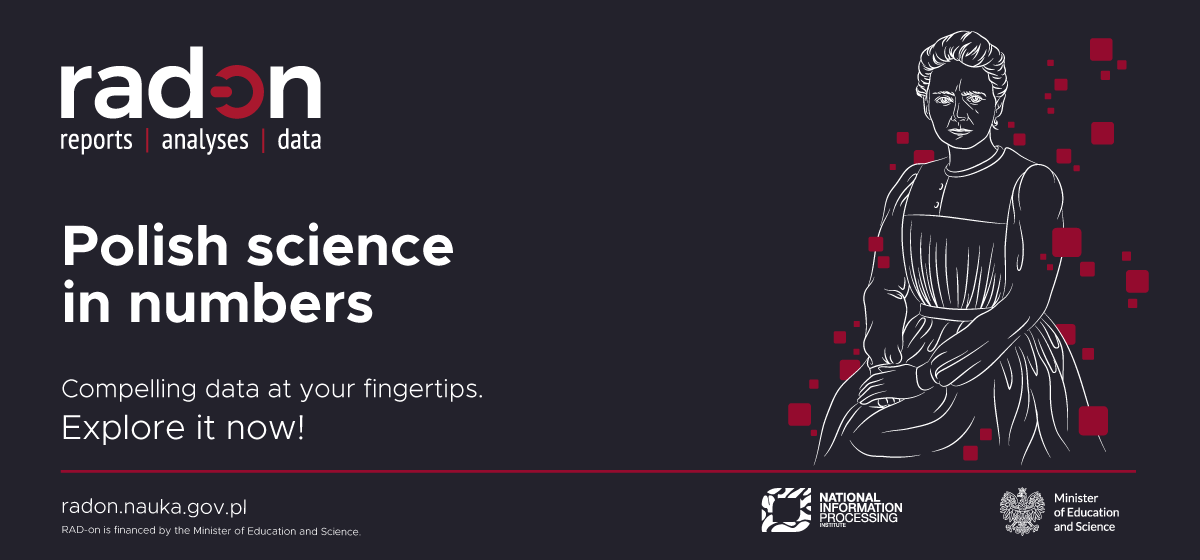Studies on science and higher education system in Poland using the RAD-on platform
In order to answer questions regarding the science or higher education system quality datasets are needed. In this workflow, we guide you through the process of gathering and analysing data about the Polish system of science and higher education using the most up-to-date and reliable open data platform, which is called RAD-on.
The RAD-on system presents reports, analyses, and data on science and higher education in Poland. RAD-on was developed by the National Information Processing Institute in collaboration with the Polish Ministry of Education and Science.
In terms of the data it collects and shares, RAD-on is currently the largest national IT system in science and higher education in Europe. It stores information on nearly all scientific institutions in Poland, as well as their scientists. This includes academic teachers and other individuals who conduct classes at higher education institutions. RAD-on also offers comprehensive lists of scholarly publications, national and international patents, research projects funded by various sources, and institutional investments. It contains extensive information on students, graduates, and on tertiary education programmes.
We hope that the information presented in this workflow will inspire valuable research on science and higher education in Poland. This workflow also serves as an invitation to discuss the future of RAD-on. We are confident that our efforts to promote more widespread understanding of RAD-on will inspire stakeholders to collaborate in the portal’s development and in the enhancement of its efficacy.

Workflow steps(5)
1 Pose research questions
2 Identifiy relevant data
3 Gather data
4 Data check
5 Analyse data
The SSH Open Marketplace is maintained and will be further developed by three European Research Infrastructures - DARIAH, CLARIN and CESSDA - and their national partners. It was developed as part of the "Social Sciences and Humanities Open Cloud" SSHOC project, European Union's Horizon 2020 project call H2020-INFRAEOSC-04-2018, grant agreement #823782.

